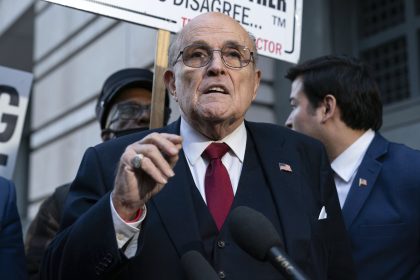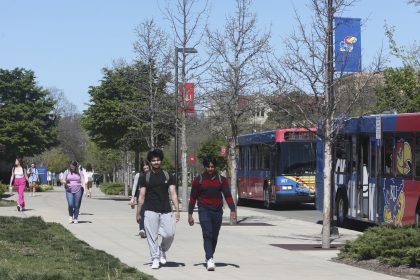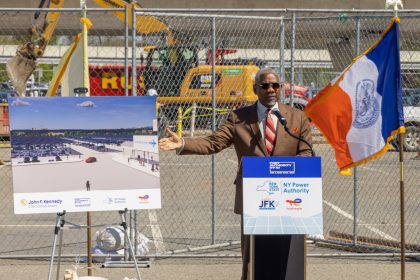Net Zero Carbon Plan Could Bolster Texas Economy

AUSTIN, Texas — Energy scientists at the University of Texas at Austin contend in a new report that their state could strengthen its economy while eliminating carbon pollution within the next 30 years.
The report maintains Texas is well-positioned to transition to a carbon-neutral energy economy because of its abundance of low-carbon energy sources and its robust workforce. Consequently, Texas could provide a blueprint for improving energy systems by leveraging its renewable resources, energy and manufacturing industries, as well as its export markets.
The research was conducted by lead author Isabella Gee, a postdoctoral fellow at UT’s Cockrell School of Engineering, and co-author Michael Webber, professor of energy resources in the Walker Department of Mechanical Engineering. The report was funded by the Cynthia and George Mitchell Foundation, the Energy Foundation, The Meadows Foundation and Catena Foundation with contributing research from the Colorado-based Vibrant Clean Energy and the University of Colorado Boulder.
“We have a lot of opportunities to improve system resilience [by] going to net-zero by diversifying the energy supply through building flexible loads and demand response,” Webber said. “And then there are a lot of these environmental co-benefits in terms of avoiding air pollution, but also in [improving] water use.”
The report outlines four pathways for Texas to decarbonize its economy by 2050. For comparison, it also includes a “business as usual” scenario with heavy reliance on oil and natural gas. The researchers were surprised to find all four decarbonization approaches led to greater economic output estimations.
These outputs ranged from 1.6% to 7.9% increases in annual gross domestic product, according to the report. Further, the shift to decarbonize the economy would not mean eliminating Texas’ fossil-fuel industries.
“Net-zero is important,” Webber said. “It’s not zero — we allow the economy to have some emissions in one location, but we scrubbed out those emissions in another location. So, it just has to be zero in total, even if you have some emissions here or there.”
The researchers utilized a combination of modeling platforms and techniques to capture the effects of decarbonization on the economy, including a new online tool known as the Texas Energy Policy Simulator.
Developed by the climate and energy think tank Energy Innovation, the policy simulator allows anyone to plug in and test the impacts of decarbonization policies by sector, source type and pollutant. This tool is useful for testing the options from each scenario outlined in the report.
In one scenario, Webber said the state could focus on electrifying energy loads as much as possible through deploying electric transportation, heating and some industrial processes. This would have a beneficial impact on lowering overall carbon output, but wouldn’t decarbonize the state’s energy systems as much as the other pathways.
The electrification route would include tightening building and industrial efficiency standards and implementing “clean up your act” policies at the state level. Such approaches would include preventing leaks, reducing natural gas well flaring and improving end-of-life practices for methane and fluorinated gases in industry and mining.
The second scenario Webber detailed was referred to as “accelerated clean power electrification,” which would call for expanded electrification of even more energy loads in addition to accelerating the emissions profile decline in the power sector. This plan would bring net-zero carbon emissions by 2035 rather than 2050, which is in line with a number of federal climate policy targets trumpeted by Congress and the Biden administration.
“It actually kind of makes sense because a lot of the fossil fuel power plants, especially the coal plants in the United States and in Texas, are slated to retire by 2035 anyway,” Webber said. “There’s some natural retirement motion that’s happening that makes decarbonization of the power sector by 2035 not implausible, but a reasonable thing to consider.”
Another plan of action outlined in the report involves prioritizing hydrogen carriers like ammonia, methanol and formic acid as a means of replacing fossil fuels or other sources of heat in the industrial sector. Novel hydrogen carriers store hydrogen in other chemical states rather than as free hydrogen molecules to use it as a transportation fuel, according to the U.S. Department of Energy.
This scenario would compel sectors throughout the economy to shift a large portion of end-use energy consumption to a mixture of electricity and hydrogen produced from electrolysis. Additionally, the same state-level “clean up your act” policies are carried over to this plan.
In their last scenario, the researchers assumed Texas will continue its current course and can only reach net-zero through power sector decarbonization, carbon capture and removal technologies. While no new decarbonization policies are enacted in this scenario, existing policies are maintained, like tax breaks for gas producers, the absence of fees for greenhouse gas emissions, corporate automotive fuel economy standards and investment or production tax credits for certain types of renewables.
All remaining emissions could be abated through carbon capture and removal technologies in this case, leading the Texas economy to achieve net-zero emissions by 2050. This sequence of events relies on the cost of implementing carbon capture technology to be lowered over time, which is something Webber said he would expect given the trajectory of other renewable resources.
“We know from experience with the price declines of 90% plus in solar, 90% … in wind, [and the] 90% price decline in battery storage that as you scale things up you get a lot of technological learning and steep price drops,” Webber said. “We think that will happen for hydrogen, record capture and with the other options as well. So, the main takeaway is there are a lot of ways to get Texas [to] net-zero by 2050. They’re all good for us, and frankly, we can lead the way.”
Reece can be reached at [email protected]























